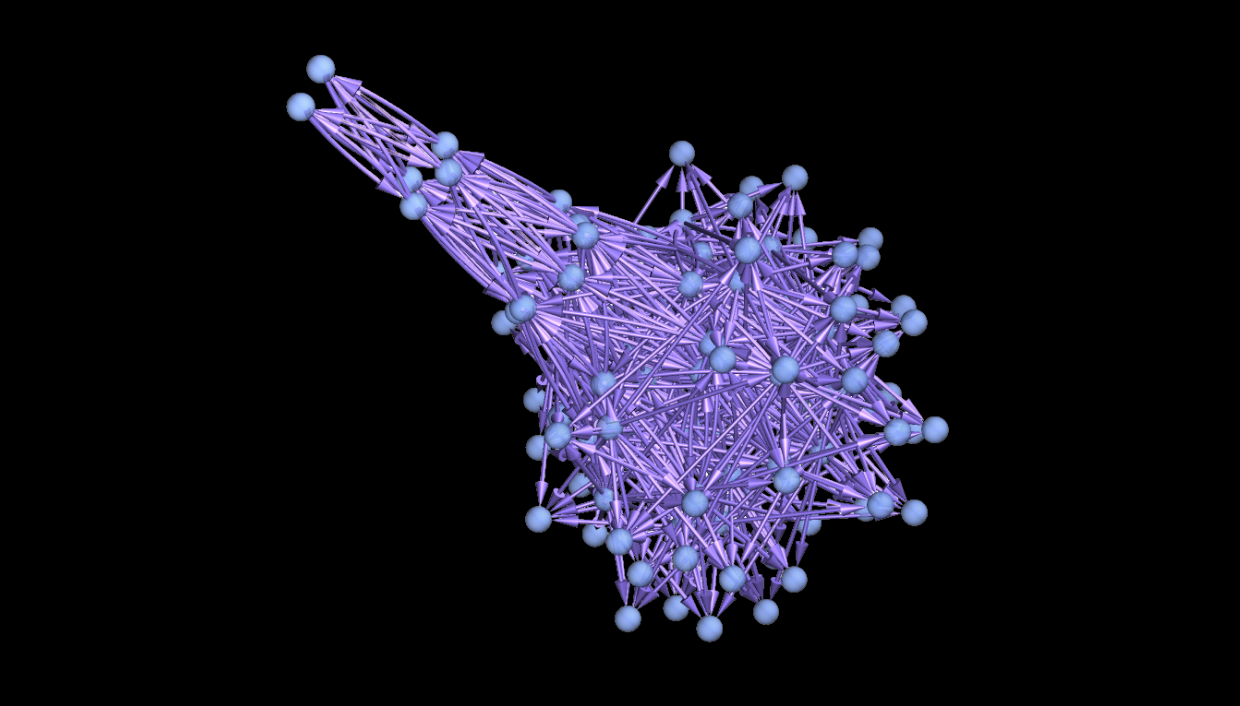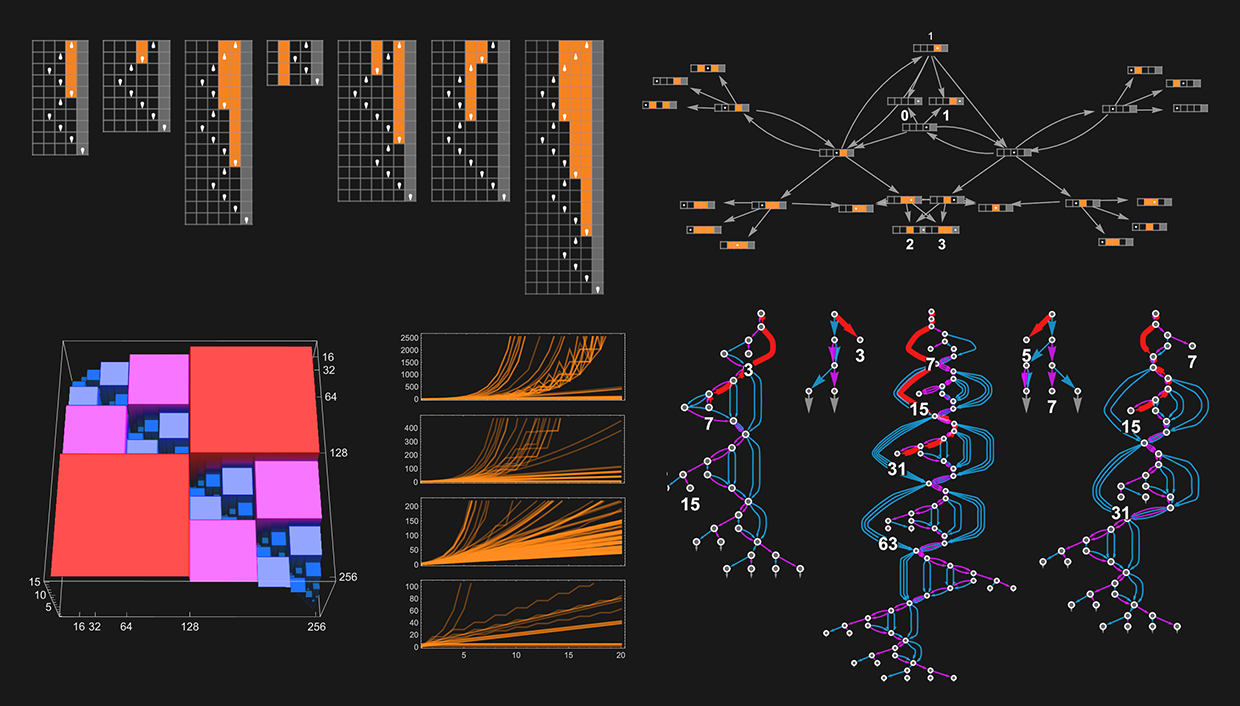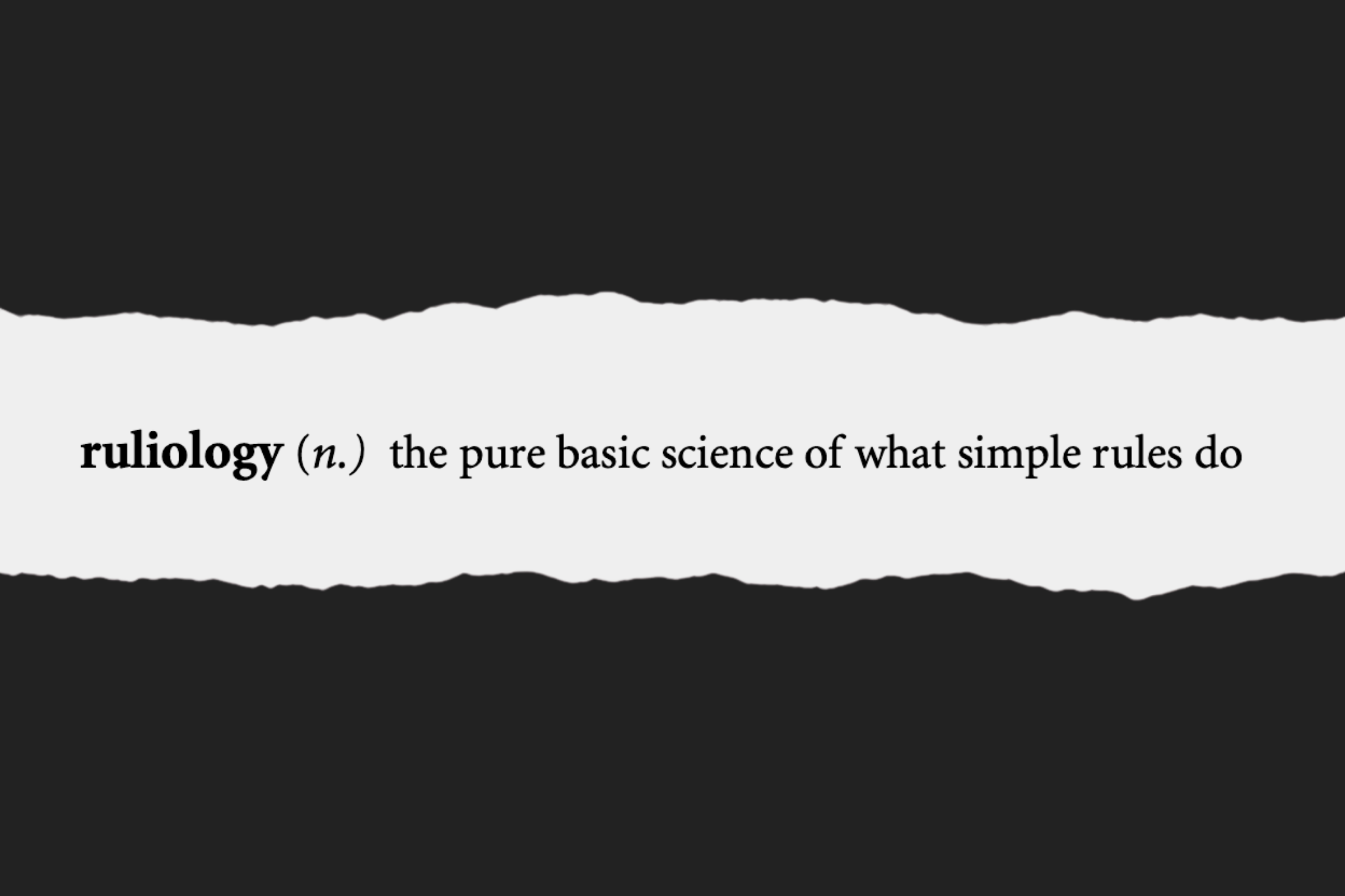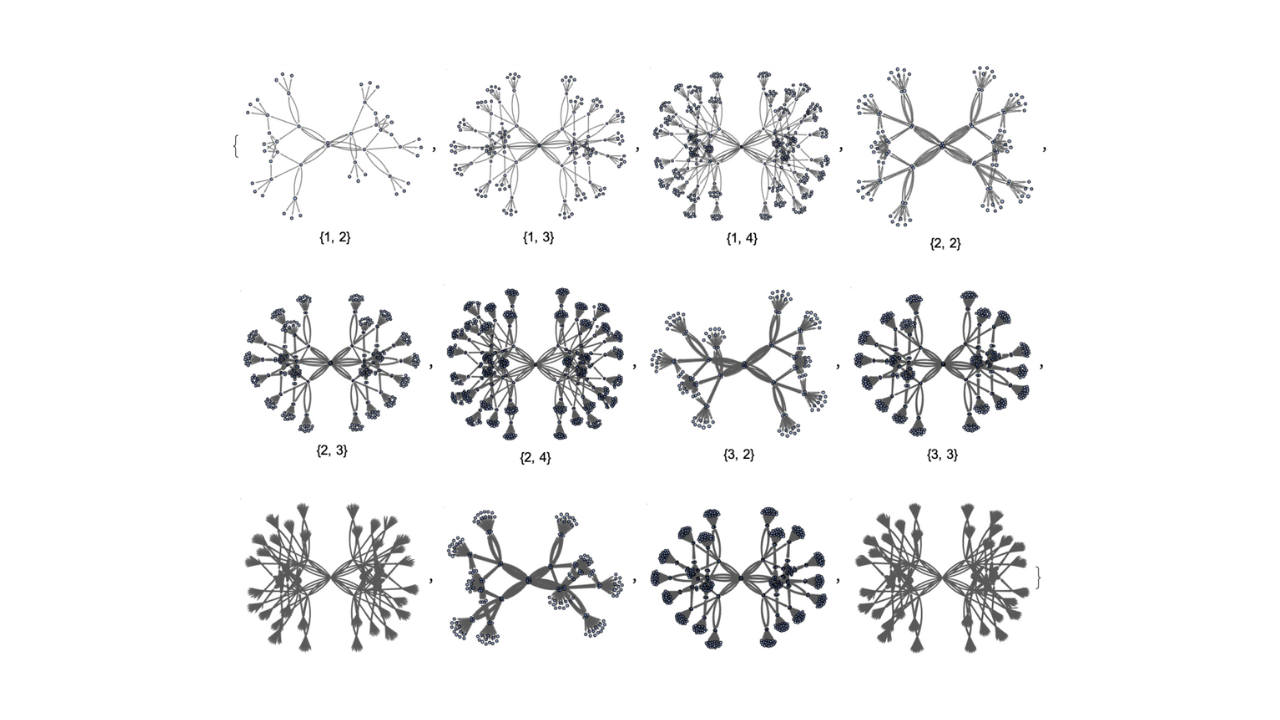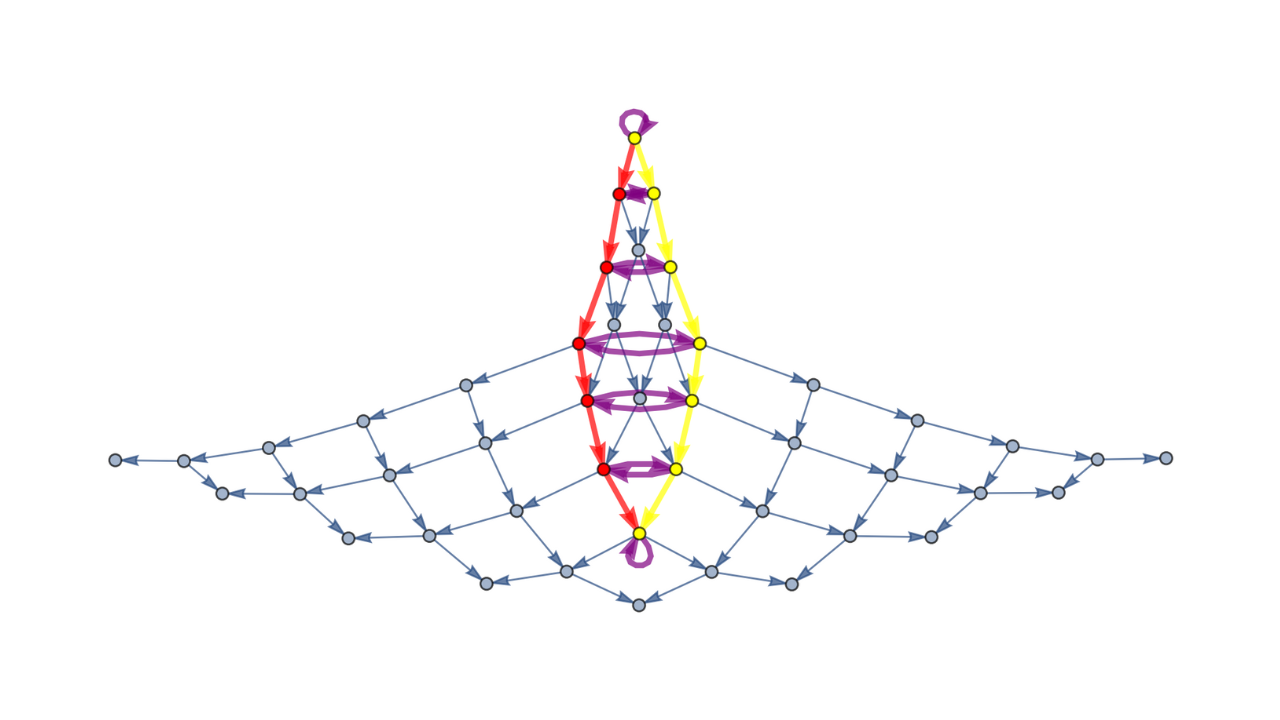
Ruliology
Ruliology, established by Stephen Wolfram, examines how simple computational rules can generate complex behaviors. This field is essential for studying various systems, from biological organisms to galaxies, using minimal computational models.
Project Overview
Ruliology at the Wolfram Institute explores the study of simple rules and their complex behaviors across various systems. The project examines how simple computational rules can generate intricate patterns and structures, aiming to uncover fundamental principles underlying complexity. It focuses on identifying and classifying these rules, understanding their properties and exploring their applications in areas like physics, biology and artificial intelligence. Our research provides deeper insights into the computational universe, helping us understand the structure and behavior of complex systems.
Relevant Resources
-
Charting a Course for “Complexity”: Metamodeling, Ruliology and More
September 23, 2021
Stephen Wolfram (2021), Stephen Wolfram Writings.
-
Exploring Rulial Space: The Case of Turing Machines
Submitted on 22 Jan 2021. Stephen Wolfram.
arXiv:2101.10907 [cs.DM]. https://doi.org/10.48550/arXiv.2101.10907
Associated Output
Stephen Wolfram
“What ultimately is there?” has always been seen as a fundamental—if thorny—question for philosophy, or perhaps theology. But despite a couple of millennia of discussion, I think it’s fair to say that only modest progress has been made with it. But maybe, just maybe, this is the moment where that’s going to change—and on the basis of surprising new ideas and new results from our latest efforts in science, it’s finally going to be possible to make real progress, and in the end to build what amounts to a formal, scientific approach to metaphysics.
Stephen Wolfram
“Could there be a faster program for that?” It’s a fundamental type of question in theoretical computer science. But except in special cases, such a question has proved fiendishly difficult to answer. And, for example, in half a century, almost no progress has been made even on the rather coarse (though very famous) P vs. NP question—essentially of whether for any nondeterministic program there will always be a deterministic one that is as fast. From a purely theoretical point of view, it’s never been very clear how to even start addressing such a question. But what if one were to look at the question empirically, say in effect just by enumerating possible programs and explicitly seeing how fast they are, etc.?
Stephen Wolfram
Ruliology is taking off! And more and more people are talking about it. But what is ruliology? Since I invented the term, I decided I should write something to explain it. But then I realized: I actually already wrote something back in 2021 when I first invented the term. What I wrote back then was part of something longer. But here now is the part that explains ruliology.
Stephen Wolfram
It’s a story of pure, abstract computation. In fact, historically, one of the very first. But even though it’s something I for one have used in practice for nearly half a century, it’s not something that in all my years of exploring simple computational systems and ruliology I’ve ever specifically studied. And, yes, it involves some fiddly technical details. But it’ll turn out that lambdas—like so many systems I’ve explored—have a rich ruliology, made particularly significant by their connection to practical computing.
Stephen Wolfram
Most physicists term people who send such theories “crackpots”, and either discard their missives or send back derisive responses. I’ve never felt like that was the right thing to do. Somehow I’ve always felt as if there has to be a way to channel that interest and effort into something that would be constructive and fulfilling for all concerned. And maybe, just maybe, I now have at least one idea in that direction.
James K. Wiles
A concise survey of how recent computational models, such as the ruliad and observer theory, are transforming metaphysical questions into formal, testable frameworks.
Stephen Wolfram
Integers. Addition. Subtraction. Maybe multiplication. Surely that’s not enough to be able to generate any serious complexity. In the early 1980s I had made the very surprising discovery that very simple programs based on cellular automata could generate great complexity. But how widespread was this phenomenon?
Stephen Wolfram
For several years I’d been studying the question of “where complexity comes from”, for example in nature. I’d realized there was something very computational about it (and that had even led me to the concept of computational irreducibility—a term I coined just a few days before June 1, 1984). But somehow I had imagined that “true complexity” must come from something already complex or at least random. Yet here in this picture, plain as anything, complexity was just being “created”, basically from nothing. And all it took was following a very simple rule, starting from a single black cell.
Dean Rickles, Hatem Elshatlawy, Xerxes D. Arsiwalla
Physical laws arise from the sampling of the Ruliad by observers (including us). This naturally leads to several conceptual issues, such as what kind of object is the Ruliad? What is the nature of the observers carrying out the sampling, and how do they relate to the Ruliad itself? What is the precise nature of the sampling? This paper provides a philosophical examination of these questions, and other related foundational issues, including the identification of a limitation that must face any attempt to describe or model reality in such a way that the modeller-observers are included.
Stephen Wolfram
How do alien minds perceive the world? It’s an old and oft-debated question in philosophy. And it now turns out to also be a question that rises to prominence in connection with the concept of the ruliad that’s emerged from our Wolfram Physics Project.
Stephen Wolfram
“We’re going to launch lots of tiny spacecraft into interstellar space, have them discover alien intelligence, then bring back its technology to advance human technology by a million years”.
But as I thought about it, I realized that beyond the “absurdly extreme moonshot” character of this pitch, there’s some science that I’ve done that makes it clear that it’s also fundamentally philosophically confused. The nature of the confusion is interesting, however, and untangling it will give us an opportunity to illuminate some deep features of both intelligence and technology—and in the end suggest a way to think about the long-term trajectory of the very concept of technology and its relation to our universe.
Stephen Wolfram
I call it the ruliad. Think of it as the entangled limit of everything that is computationally possible: the result of following all possible computational rules in all possible ways. It’s yet another surprising construct that’s arisen from our Physics Project. And it’s one that I think has extremely deep implications—both in science and beyond.
Stephen Wolfram
Multicomputation is an important new paradigm, but one that can be quite difficult to understand. Here my goal is to discuss a minimal example: multiway systems based on numbers. Many general multicomputational phenomena will show up here in simple forms (though others will not). And the involvement of numbers will often allow us to make immediate use of traditional mathematical methods.
Stephen Wolfram
Let’s say we find a rule that reproduces physics. A big question would then be: “Why this rule, and not another?” I think there’s a very elegant potential answer to this question, that uses what we’re calling rule space relativity—and that essentially says that there isn’t just one rule: actually all possible rules are being used, but we’re basically picking a reference frame that makes us attribute what we see to some particular rule. In other words, our description of the universe is a sense of our making, and there can be many other—potentially utterly incoherent—descriptions, etc.

